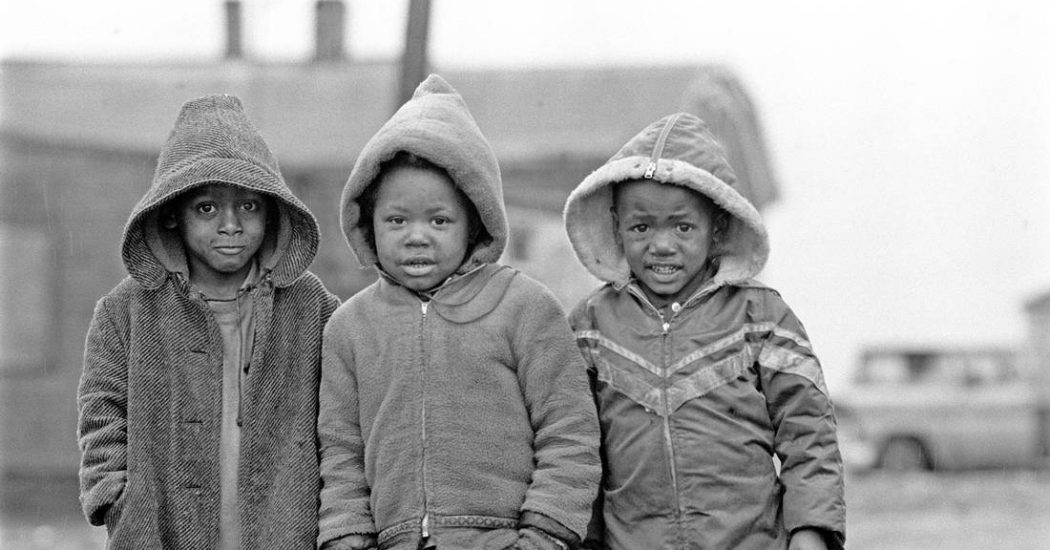
KJIPUKTUK (Halifax) – “You do not belong here”, the words echoed in my mind, creating a constant disturbance in my entire spirit. “You do not belong here” became the name of the unfamiliar place where I lived, churning my stomach for as long as I can remember. It was as if I had arrived on a foreign planet and even though I spoke the language of its inhabitants, it still felt forced, unnatural, uncomfortable and entirely unfamiliar.
There was this deep yearning in my soul for “something.” I did not know what that something was, I just knew I felt this strong void, like I was detached from something. I felt there was more to me then what I was experiencing or was allowed to express, and I felt disconnected from myself and from my environment. A huge piece of me felt dead while I wanted to be alive.
It’s hard to describe something that you don’t know but you can feel so strongly. As I began my journey as a young black girl, I began to wonder, even doubt, if it was just me or if this “something” existed beyond my thoughts and feelings.
The one thing I knew was that this place and the place that I was yearning for were not the same. As hard as I tried to live or exist in my environment my mind could not move beyond the blockages of “something”.
“Go back to Africa”! The kids shouted! Huh? Africa? Why are they saying that to me? I was born in Nova Scotia, so why would these kids be telling me to go somewhere I am not even familiar with? That didn’t make any sense at all to me, but it was a catch phrase they used quite often at my elementary school to let me and others know what I have always felt- YOU don’t belong here! “Go back to Africa”! Hmm, perhaps this Africa could lead me to the “something” I have always wondered about but they don’t make Africa sound very nice, I thought. In fact, the more they said it the less I wanted to be associated with it.
“I’m Irish and Scottish,” I remember replying one day. My mother always told us how her great grandfather arrived here from Scotland years ago with one suitcase that contained all of his belongings. She denied that he came from Africa, and insisted that her grandfather was Scottish, straight from Scotland. My dad told us about our Irish and French influences, and I mean his grandmother was a white french lady, so why would these kids, and sometimes adults, be telling me and other Black people to go to a place we have no knowledge of, and a place that white people speak so venomously about?
“Wooly Mammoth!” he teased, as he ran past me messing up my hair. This damn white boy called me this every single day as he and my peers laughed! Older folks would say that if a boy teased you that meant he liked you. This boy however was teasing me for other reasons, and there was no like involved at all! I don’t know why he was so fixated on my hair, but I remember it making me feel angry and embarrassed at the same time. Why would kids in grade four label my hair as unacceptable and what in the hell was going on with my environment? I began to wonder if the last place of real soul safety, I experienced was inside of my mother’s womb.
I never thought negatively about myself, my hair or my ethnicity prior to school, but I was slowly and surely being taught to hate myself and that something was wrong with my naturalness.
In school most teachers looked at us Black kids with disdain. Children teased us about our skin colour and hair texture on the playground. People yelled nasty things out of their cars, sometimes they threw things at us too. Drivers went out of their way to splash us with puddles on rainy days. Store clerks were rude, followed us, or controlled how many of us could be in a store at one time. The anger and confusion inside of me built day by day. I went from missing “something” to having no sense of belonging at all! How did everything change so quickly and why were we not prepared for this reality?
Middle school brought much of the same messages, Black was bad and white was good. Labels that separated us and the denial of Black acceptance in this white world grew louder, harsher and more violent. “Kizzy!” “Kunta Kinte!”, the white kids laughed and teased us at school after seeing Roots by Alex Haley. “Nigger” was their usual go to but in the wake of the premiere of Roots, they now had a larger vocabulary of racial epithets to puncture us with. We were neither equipped nor prepared to defend ourselves against these attacks. Some of the Black kids actually played along too, looking for their place to fit in, I guess, wanting to be accepted. One thing for sure was that we were all in a mess of something and we had no clear understanding of what it was.
I never felt like I belonged here but now “here” was loudly and boldy echoing those sentiments. I was able to now say out loud “I DON’T BELONG HERE.” “Here” was clearly a place where white folks belonged but I “belonged” to a place they called Africa!
As more strokes of racial divide filled the canvas of my environment it became clear I was missing “something” because indeed I was. I was missing my culture, my history, my identity, my truth. It was missing from everywhere and replaced with someone else’s version of who I was. I was yearning for the love, acceptance, protection and safety that the African Diaspora stole from me, from my mother, my grandmother and the many generations before us. The “something” that was missing was me. My lineage didn’t begin in Nova Scotia, Canada, it began in Africa. You see, I belong to the “stolen ones”. The ones who survived the African Diaspora and the constant yearning that I have always felt and could not ignore was the simple desire to be back home. That home, the something I was detached from, was my roots- Africa.
See also: Kinda hate, a poem by Angela Bowden
With a special thanks to our generous donors who make publication of the Nova Scotia Advocate possible.
Subscribe to the Nova Scotia Advocate weekly digest and never miss an article again. It’s free!




Thank you for sharing your word Angela, your emotions come through in you writing! I understand the life you lived, New Glasgow was one if the most racist places to live!
Thank you for sharing this Angela. I grew up in Halifax at this same time and never understood the treatment of your race although I saw it. Although I did not realize it at the time I was taught to choose my friends by my heart, evaluating their heart. I can’t imagine my life without those friends and later roommates! I cannot imagine what your life growing up was like. Your words are helping me understand a bit. Thank you!
It has to be terrible to grow up realizing you were not welcome where you were born and live… Thank you for expressing your real lived experience so eloquently. On behalf of white Nova Scotians, I’m truly sorry. I didn’t know we were like this until I had Scottish-Kenyan kids of my own, and I got to know the Black Scotian community more deeply. I’m raising my Scotian kids in Halifax now – and, while it’s better, IT IS NOT OVER YET. White Nova Scotians who understand must speak out to their fellow white Nova Scotians and challenge from within. Advocate.
I am sorry this was your and many people’s experience. Deeply sorry. We must do better. Thank you for sharing your pain.
Peace to you soul. I am sorry that this has happened to you. I must say that I loved your little spark of power when you stated “That dam white boy called me this…” Stolen ones for certain and I doubt that the whites who stole beautiful young Africans, crammed them into the bottom of boats, and sold them like livestock in a cold foreign land. NO one. can change history. It is! BUT EVERYONE can affect the future and I as a white woman in her 60’s am proud that you are expressing your memories and deepest pain in prose. All the power to you. I hold hope that times may just be peaceably changing for the better for all non white people.
I send you love and strength.